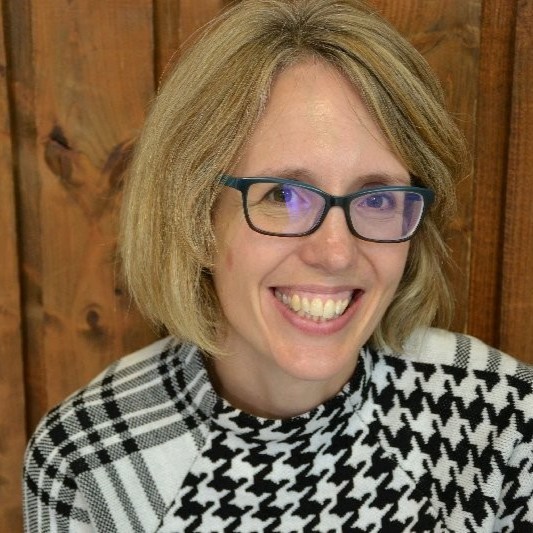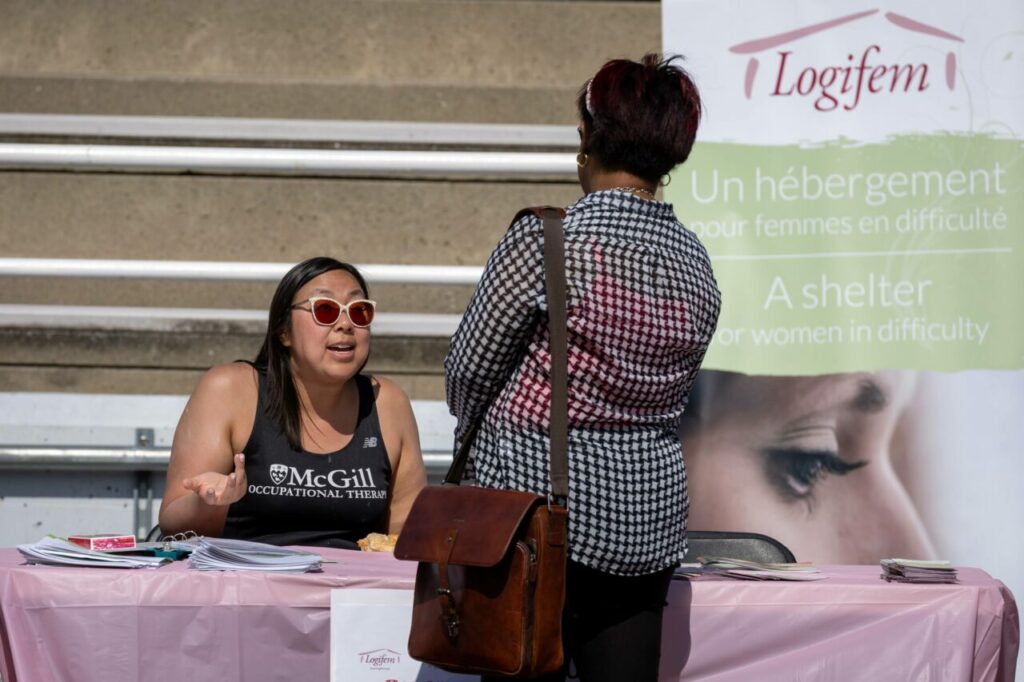
Coldest Night of the Year event on February 24 raises funds for Logifem housing project for women experiencing homelessness. Logifem partners with SPOT on the Lotus Project, a community participatory research project that is identifying barriers to vulnerable women getting – and keeping – permanent housing
Aline Nadro can still remember the stress and uncertainty of the days she spent in a shelter. On the verge of leaving, she didn’t know until two weeks before the departure deadline whether she would have a more permanent place to call home. “My accommodation was about to end,” Nadro shared, speaking in French. “If I hadn’t been accepted here, I don’t know what I would have done.” Unfortunately, Nadro’s experience reflects the hardships of countless women who struggle to secure permanent housing after leaving shelters, a concern that sits at the heart of the Lotus Project.
A permanent place to call home: The Lotus Project’s mission
Addressing this gap in support systems was the driving force behind the creation of the Lotus Project, a community-based research project led by Logifem, an organization that helps vulnerable women find housing, and McGill University’s School of Physical and Occupational Therapy. “The original objectives of the Lotus Project were to research the needs of women transitioning from a shelter into long-term accommodation, and to identify and evaluate support systems that can be put in place to help with that transition,” explains Sally Richmond, the Executive Director of Logifem.

While temporary housing offers an immediate rescue from the harsh realities of the streets, it’s the transition to permanent housing that truly sets the stage for long-term stability and improved quality of life. Now settled in a permanent home, Nadro has entered a new chapter in her life: one in which she can finally progress beyond mere survival into a state of living and wellbeing. Still, she remains mindful of those less fortunate who remain trapped in the cycle of temporary housing.
Don’t forget the “women” in “homeless women”
Addressing the issue of women’s homelessness requires a nuanced understanding that these individuals also face unique issues associated with their gender. “Being women, we’re more vulnerable on the street,” says Nadro. Adds Richmond: “Homelessness is often viewed through a more masculine lens, and sometimes those specific issues don’t get as much attention as they need.” Among topics of hygiene, security, health and dependent children, Richmond goes on to highlight one of the more glaring issues: “Violence against women and homelessness are portrayed as being two separate issues, whereas, really, both are connected.” This intersection of gender, violence, and homelessness underscores the critical need for targeted interventions for women.

“There’s a lot of women who are leaving shelters like Logifem but are coming back,” says Laurence Roy, OT, PhD, Associate Professor at SPOT and lead researcher for the Lotus Project, “or that we know are leaving but for an unstable or dangerous situation that puts them at risk of violence or homelessness.” The pattern of women returning to shelters invites the question: what are the barriers to helping these women in obtaining permanent housing?
While resources are in place to assist women in securing permanent housing, there’s a notable gap in the support provided during the crucial transition period between exiting the shelter and establishing a stable and affordable residence, an issue exacerbated by the ongoing housing crisis and related explosion in homelessness in Quebec and across Canada. Bridging this support gap for women in the transitional phase is the primary goal of the Lotus Project.
Collaborative solutions
Described as a “community-academic initiative,” the Lotus Project sets itself apart as a participatory research project, a methodology that brings together individuals from diverse backgrounds, consisting not only of academic researchers and universities but, crucially, the voices of homeless women themselves.

The advisory group includes women like Nadro, whose personal encounters with homelessness ensure that the project’s mission remains guided by their firsthand perspectives. “We have to listen to these voices, otherwise they’re falling through the cracks,” says Vanessa Seto, OT, PhD, Lotus Project researcher and former occupational therapist at Logifem Prof. Roy adds, “It’s really the community needs that are driving the project.”
Alongside its community focus, the Lotus Project maintains rigorous academic standards in its research, which, as Richmond notes, incorporates perspectives from both academia and practical field work. “An academic can look at something from one angle, but then somebody actually working in day-to-day issues might see things differently,” she explains. Moreover, the Lotus Project takes an action-oriented approach, prioritizing the creation of actual, transformative solutions. Seto emphasizes its practicality: “It’s not just research for the sake of research.”
Walk for change: Coldest Night of the Year
Calling for community engagement, Logifem is looking for participants to join them in the “Coldest Night of the Year” charity walk. Scheduled for February 24, 2024, this communal event is a gesture of support and a way to raise money for those in need. Funds raised by Logifem will go towards an important cause: fitting out their new housing program consisting of 35 subsidized apartments for women exiting shelters.
“The perspective of being out there on the coldest night of the year and going back to your homes to the warmth,” says Richmond, “makes you really think about everything that you have, and everything that other people are missing.”
More information:
Coldest Night of the Year walk for Logifem on February 24 – join the team or support them in any way you can!
Project Lotus: A really cool community-based initiative assisting women post-homelessness, in the International Journal of Whole Person Care, 2022
